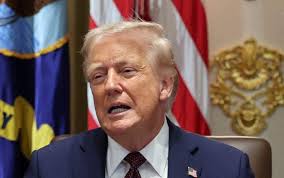A US federal appeals court has struck down most of the tariffs imposed by former President Donald Trump, ruling they were illegal and exceeded his constitutional authority.
In a 7-4 decision, the US Court of Appeals for the Federal Circuit rejected Trump’s claim that the levies were justified under the International Emergency Economic Powers Act (IEEPA). The judges said the 1977 law does not give presidents the power to impose tariffs, stressing that tariff-setting remains a core responsibility of Congress. They described Trump’s measures as “invalid as contrary to law.”
The ruling affects Trump’s “reciprocal” tariffs—applied broadly to countries around the world—as well as duties placed on China, Mexico, and Canada. It does not cover other tariffs enacted under separate authorities, such as those on steel and aluminum.
The case stemmed from lawsuits filed by small businesses and several US states after Trump’s 2024 executive orders imposed a baseline 10% tariff on nearly all imports, alongside additional reciprocal duties. A lower court had already found the tariffs unlawful, but enforcement was put on hold pending appeal.
Reacting on Truth Social, Trump blasted the ruling as “highly partisan” and warned that lifting the tariffs would “literally destroy the United States of America.” He argued that the duties were vital to economic strength and national security.
Administration lawyers had similarly cautioned that scrapping the tariffs could trigger an economic meltdown on the scale of the 1929 stock market crash, insisting the measures were crucial for safeguarding US security and foreign policy interests.
The decision is set to take effect on October 14 unless overturned. Legal experts expect the case to head to the US Supreme Court, where it could become a defining test of presidential authority. With six of the nine justices appointed by Republicans—including three by Trump himself—the outcome could significantly reshape the limits of executive power in trade policy.




